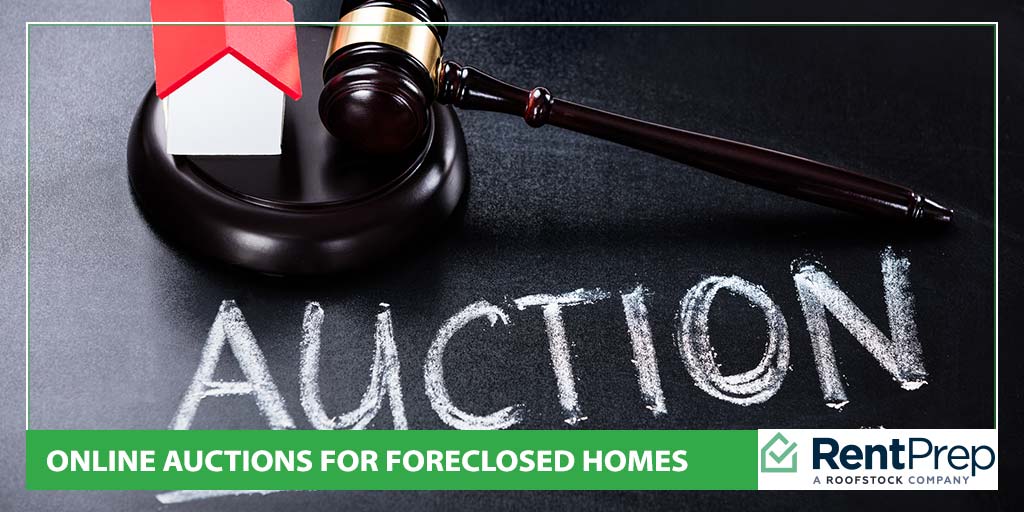
This story comes courtesy of Will Schenk who is a friend of the blog and stood up in my wedding. The post is a first hand look at his experience with online auctions for foreclosed homes.
His story
I wasn’t sure what I was more scared of, winning the auction or losing it.
I nervously sat in front of my computer inputting my max bid of $83,333 cash on a distressed property in Buffalo New York, with 90 seconds left before the auction ended.
This was the first time I had been a player in an online foreclosure auction and doubt was at the forefront of my mind as I asked myself “do you have enough cash to pull this off?”
In the end, I narrowly lost the auction to someone who committed $85k, but what I learned in the months leading up to my first auction was invaluable to me.
My situation that leads me to look for a new home

Before I go over my story and what I learned about online home auctions, I would love to state my motivation, because online home auctions and the renovations that follow are still mostly unblazed paths and with that, are riskier than MLS bought homes. My wife and I currently live in a small double in Buffalo NY; we live in the upstairs unit and rent the lower for extra cash flow.
We have talked about our first “house,” but we were in no rush because our current set up is so cash positive. Then, we found out my wife was pregnant and we had our first real need to expand our living space. We recruited a realtor and cleared our Saturdays to look at houses, lots and lots of houses. We quickly found out, with the current low interests rates, also came low inventory because of all the extra buyers taking advantage of cheap borrowing. With low inventory, came high prices.
We were shocked to see prices in Buffalo NY of all places, rise almost 20% in the last year. Not only were prices up on finished and updated 3 bedroom homes, they were up on fixer uppers and heavily distressed properties too. To make the situation even more stressful, most homes were selling in a week or less, which doesn’t give you much of a window to figure out the renovation costs and cash flows.
My wife and I are very frugal and hope to own more rentals in the future; we fully understand if we overpay or commit to a large mortgage payment for our first family home, it could kill our ability to acquire new rentals in a couple more years. We felt stuck, we didn’t want to pay a huge monthly mortgage, we didn’t want to live in an under-finished home and move in 3 years and we really wanted to find more space for our growing family to expand.
Figuring out our budget
With need comes innovation and exploration; feeling stuck lead me to open my options up a bit. I sat with my wife and made a wish list of everything we wanted in a small home, then I went to a few building supply stores to get an idea of what that would cost. Of course this number varies a lot house to house, but you get a general idea certain renovations cost.
In total, I figured it could cost between $20k and $50k in just materials. Then we talked about what we wanted our max monthly mortgage payment to be and decided on $1100. We could definitely afford more, but with a new baby and a passion for travel, we really preferred to keep our monthly bills low.
Seeing that in Buffalo NY, $1100 a month can afford you roughly $130k house and with renovations starting at $20k, we now knew we had to find a home for $110k or less. That is what lead me to explore distressed properties. Anyone considering buying an auction home or even a MLS listed distressed home, the number one rule is to know your numbers inside and out. A bad first “deal” could prevent you from ever doing this again or put your family in great financial pain, don’t take this step softly.
At minimum you need to know:
- How much you can afford on a monthly payment
- Line by line, what each upgrade or repair job will cost in materials
- Line by line, what each upgrade or cost will cost in labor
- Then add them together and add an additional 30% for unseen costs
- Then add in 3 months of mortgage payments you will make as the house is being worked on, before it can be lived in. =
So, we knew we needed to find a fixer upper and not just any fixer upper, but a cheap one with lots of potential. So we started with what we knew, the MLS listings. We visited 3 or 4 fixer uppers before we found one to make a move on.
We quickly hired a contractor, did a walk through to get a labor estimates and prepared our best bid. At last, we lost the house to someone who came in with full asking price, in cash. We were dumbfounded, “who had that much cash, doesn’t everyone buy a house with a mortgage” we thought.
So we found another house 2 weeks later, same result, lost to a cash buyer. This lead to our next great revelation, in the distressed property game, cash IS king. Sure there are 203k rehab loans and other loan options, but they are slow, very slow. Sellers don’t want to risk losing a buyer on distressed houses and will always take a cash offer over a loan buy, even if it is for less money.
So, we had to figure out how to get 130k in cash. We went to our bank and set up a home equity line of credit, it took about 2 months to get completely established but now we had cash to play with the big boys. The only issue, we were only approved for $110k and had $10k in cash savings, so our all in budget dropped from $130k to $120k.
With our new lower budget and easy to tap cash source, I became more aggressive with finding deals. I started showing up to county auctions, talking to other investors and scouring the internet trying to learn where to find deals on houses.
In my search I learned that some auctions were held online, so that out of town investors could easily bid.
From there I learned to check the more popular home foreclosure sites:
- Realtytrac.com
- Foreclosure.com
- Homepath.com
- Redfin.com
- Zillow.com (filter for foreclosures)
- Auction.com
While each site often has listings that the others don’t, many of the sites also have outdated info and many homes that have already sold. I would suggest to not simply check one site, but check them all periodically, hidden gems do pop up from time to time.
An online foreclosure auction?

Fast forward 6 months later, I had been slowly learning about auctions, flips, renovations and the Buffalo market and then one morning I stumble upon a new listing.
It was a MLS listing, but was only taking offers on their online auction that started in 2 days. I scheduled a walk through (which is very rare for foreclosed homes) and decided this home was worth a shot. I made a comprehensive list of the needed repairs and what labor and materials would cost and figured out it would be about $35k.
With my all in budget of $120k, I could go as high as $85k but preferred to stay at $75k in case renovations went over budget. Next, we ran some comparables, just to make sure this house fixed up would be worth $120k or more.
Our estimates showed it would be worth $135k to $155k, so if we could pull this off, we would not only have a great place to live, but would have some equity.
Auction Day!
Then the auction day came, the auction would start at $58k, would last 3 days, would go up in at least $1k increments and would add 2 minutes time to the clock after every bid (important detail). I watched like a hawk my first 2 and half days, in that time only 4 bids were entered and the house was only priced at $63k. I was very hopeful that I could not only get the house, but could get it for less than I was expecting. Slowly, time crept towards the final hour, 4 more bids came in pushing the price to $70k, but that was ok I thought. Now we are in the final 5 minutes and the auction comes alive, 6 bids come in fast, pushing the price up to $80k, I waited until the last 15 seconds and bid $81,100, but someone bids $82k.
The auction extends 2 more minutes because of the bids, I take a deep breath and put in a bid of $83,333 (in truth, more than I wanted to offer at the time, but I was excited) and I was the highest bidder. That only lastly 10 seconds though, my bid was quickly upped to $85k and I lost the auction 2 minutes later.
I was a little down for a few days, I had put a lot of effort into that house but that was the first time I could say I was truly ready to make the jump.
Recap of what I learned from researching foreclosure online auctions:
In all, it took about 6 months to acquire the knowledge and financial position to even truly be part of an online home auction, but now I am ready for my next one. I am still hunting for a distressed property but have learned to be more patient than I was in the beginning; if you want to end up with one property, you’ll likely have to go after 10 or 20.
My biggest learned lessons from the online home auction process:
- Be prepared to sink some serious time on learning. Sure you could potentially save/make some decent cash, but that money is earned through hours of research and learning.
- Cash is king, very few deals are financed with a bank. If you want to be serious about auctions, build a big cash reserve or try to meet some “hard money” lenders.
- Whether the deal works or not is less dependent on how handy you are and far more dependent on how accurate your numbers and budgets are.
- You never truly know what some projects could cost until you meet with a few contractors. Pay one or two to walk through a home with you for 30 minutes and give you price quotes.
- If your project are adding up to be too much money, flat out ask your contractors what you can do to save money. They usually have some great suggestions.
- Finding the right auctioned home is a waiting game, there is no schedule or pattern for when houses get listed. If you don’t have time to wait, this may not be for you.
- Online auctions are all about the last 10 minutes. I no longer check the current prices on my online auctions until the last few hours.
- Plan to pay close to market rates for online auctions. They aren’t are uncommon as they used to be and tend to sell for near 30% less than it would cost if it were fixed at market value. If you can figure out an accurate range the house would sell on the open market with an average renovation, you can reduce those estimates by 30% and have a good idea of what the final price may be at the auction.
- Because of the aggressive nature of today’s bidders, MLS listed distressed properties are still a great option and aren’t much more money than auctioned homes. In additional, you can generally walk through all MLS properties and identify how much renovation money is needed. At the moment, I hunt equally on MLS listings and online for auctions.
I hope my story sheds some light on the little talked about topic of “online foreclosure auctions” and better prepares you in your house hunt.

